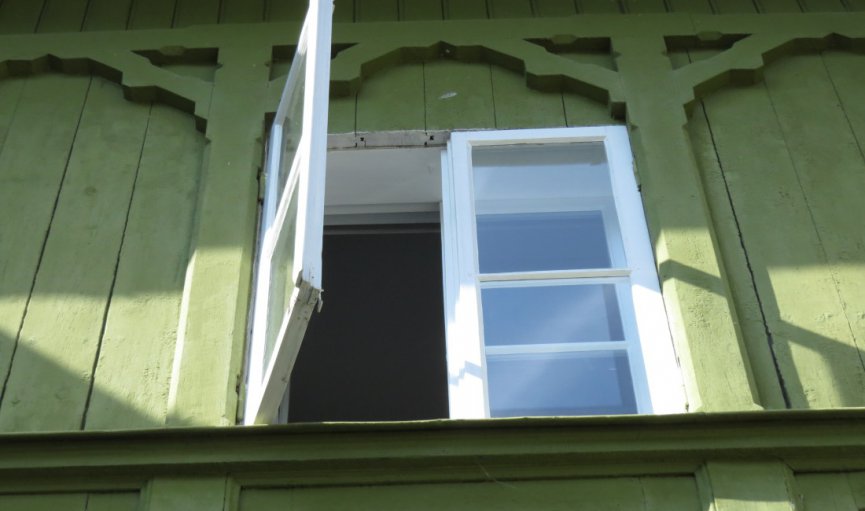Boiled eggs, mayonnaise, marinated gherkins: all of them I can eat, and all of them I don't particularly like. Combine them and you have the basic chemistry of the pre-eminent Latvian salad, rasols, so it is fitting that rasols was the thing that introduced me to an important but hidden concept within Latvian society: pretending to like things a bit more than you really do.
My first encounter with rasols was on a picnic with a nice young woman on a summer's day. I wore my best shirt. She pulled a suitcase-sized plastic box from the basket and prised off the lid with a crowbar. Inside was a vast trough of rasols. She had made it specially for me. It was a famous Latvian salad. She handed me a spoon.
"How do you like our rasols?"
I realised the word "our" was important, signifying the entire Latvian nation.
"Very good," I replied, scanning the park for trees I could dive behind.
It was the same at our wedding. There was a bowl of rasols that stretched towards the horizon. Coins had been hidden inside the alleged salad. I had to eat up the whole bowl as the wedding guests looked on and offered words of encouragement. Spoon after spoon disappeared down my neck. I marginally preferred the taste of the coins to the taste of rasols.
"How did you like our rasols?" asked an aunt, official keeper of the family rasols recipe.
"Very good," I replied, signalling for the wedding cake to be brought in immediately.
But this is not about rasols, thank goodness. It is about what we might call the ''rasols reaction", the act of saying something is "very good" when deep down you think it is merely okay. It is quite a subtle thing. It is not outright lying: you don't say you love something you hate. It is not quite as craven as a "white lie". You don't say rasols is "awesome" or "wonderful". You politely smile and say "Very good."
It is a form of politeness, but something more important, too. The rasols reaction is based on your keen awareness that someone has gone to a lot of trouble to make the rasols and that their feelings will be hurt if you dislike it. It is not about your opinion of rasols: it is about your opinion of them and your willingness to subordinate your ego rather than cause offense or pain. Your opinion of rasols is, after all, unimportant.
And in Latvia, with its population of fewer than 2 million, it can feel as if everyone is part of an extended family with a rasols recipe. So when a new book or play or exhibition or film (particularly films) comes out, rather than say it was okay, or a bit boring, or not as good as you had hoped, you will tend to say "Very good," and concentrate on an honest enthusiasm for the set dressing or the costumes, pointedly ignoring the fact that the script and direction were no better than average.
Because we know it is hard to get any film made, to get any book published, to get any exhibition staged, and on balance it is more important to encourage than to criticize if that criticism will only cause offense or pain. Empathy trumps ego.
There is an obvious objection to the rasols reaction: that saying "very good" to something that is not very good is tendentious and encourages mediocrity at the expense of excellence. It is a hard argument to counter. But in defense of the rasols reaction I would suggest that by saying "very good" we are not necessarily giving an endorsement, just signalling our desire not to ruin others' pleasure.
As an example I recall a Major Cultural Event a few years ago. I went to considerable trouble to get a ticket and looked forward to the Major Cultural Event for weeks in advance. I was predisposed to enjoy it immensely. Wearing my best shirt, I settled into my seat.
Technically, the Major Cultural Event was as I had expected. But it didn't affect me as I had expected. It went on too long. Some bits felt like padding. At times it became almost self-indulgent. The applause and encores came at last, but they too felt slightly forced, as if the audience was playing along with the performers -- which of course is exactly what was happening. It was the rasols reaction on an elevated cultural plane.
In the days after the Major Cultural Event people asked what I had thought of it.
"Very good," I said.
Then, many months later, in an unguarded moment another friend asked me the same question.
Without thinking I replied: "Very good... though to be honest I was a bit disappointed. It didn't affect me as much as I expected."
She stood there, mouth agape, in a state of stupefied amazement.
"Thank God," she replied, "I thought it was just me!"
It is unlikely we were the only two people in the audience who felt that way. Probably there were lots of us. But I'm glad that in an age characterized by 'Like' and 'Dislike' buttons, our polite, non-committal, slightly cowardly but definitely not egocentric "Very goods" had helped everyone else have a Major Cultural Event to remember.
I would like to say I have developed a taste for rasols, but in all honesty, I haven't. But I can eat it. That much I have proven.
































